Strictly Personal
The UN’s failures require a new path in Libya, By Khaled Assari
Published
10 months agoon
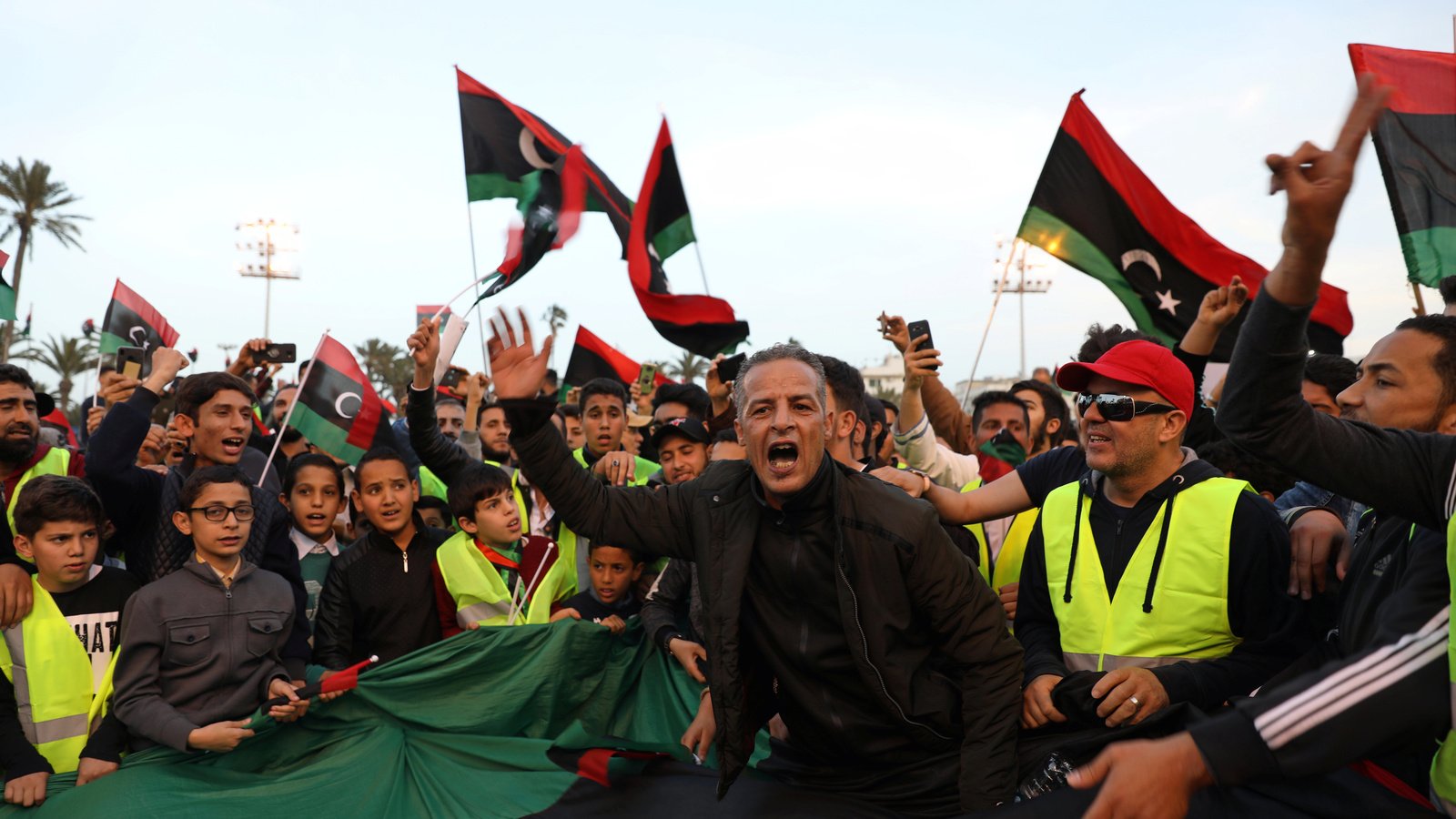
The UN Support Mission in Libya (UNSMIL) has failed in nearly every conceivable objective. Its shortcomings are concurrently structural and individual: a poorly designed mandate, an almost total disregard for Libyan political history, and a rapid turnover of personnel. The lack of progress on the ground is wholly unsurprising.
It is beyond time to move past the UN’s bureaucratic holding-pattern strategy and damaging “cookie-cutter” political formulae that simply don’t fit and therefore won’t work no matter how many times they are tried. Libya is deeply tribal and factional. To be viable, the solution in Libya can only result from engaging robustly with Libya’s unique history to ensure it contains the necessary ingredients of national identity to be sufficiently unifying.
UNSMIL was established shortly after the end of Libya’s First Civil War. Muammar Gaddafi, Libya’s long-time dictator, was deposed in a brief internal conflict. Libya’s rebels received extensive air support from NATO along with intelligence and arms assistance from the most powerful Arab states, particularly Qatar and the UAE. Initially, the Libyan case was held up as an exemplary post-Iraq reaction, with the United States “leading from behind” and avoiding any ground commitment.
Western air and naval assets, impervious to a response from Gaddafi’s forces, dismantled their enemy through a series of precision strikes which enabled a loose coalition of anti-regime units to topple Gaddafi. Libyans themselves caused a transformation within their country, not the West. Leading from behind was, seemingly, a wiser approach than the past decade’s blunders.
After the military victory, the baton was handed to the UN to midwife Libya into a democracy. UNSMIL was meant to be a short political support mission, meant to lay the groundwork for free and fair elections. Elections would then create a new government that would appoint a president and pass a constitution, thus ensuring Libya’s long-term political stability.
UNSMIL’s fundamental mistake, however, was to assume that democracy would work in post-Gaddafi Libya even if devoid of situational context. Ironically a similar mistake was made in Afghanistan and Iraq.
In each of these cases, with the UN as the active and enthusiastic convener, there was a rush to a democratic transition that did not in fact result in democracy, but instead fuelled multiple rounds of conflict, entrenched political dysfunction, and even civil war because ill-conceived political structures simply reflected divisions within society, highlighting them served to deepen them, rather than create the necessary binding glue for a new more united political culture.
The form of democracy matters
There are different forms of democracy – parliamentary (many different models with several (e.g the UK, Sweden, Norway, Denmark etc) including a constitutional monarchy), presidential (a variety of different models) and semi-presidential (slightly less common but again a number of different models).
Just like switching round the French Presidential model and the UK’s Parliamentary model (a constitutional monarchy) would likely result in political and institutional dysfunction in both countries, imposing forms of democracy in Libya, Afghanistan and Iraq, that have little connection to each country’s own and unique national political history and demography is clearly a recipe for democratic failure. The lesson is that the form of democracy matters.
In this light, the General National Congress (GNC)—Libya’s elected transitional government—simply reflected the divisions within Libyan society between the country’s west and east, Islamists and secularists, liberals and conservatives. UNSMIL oversaw and endorsed this process, all without engaging in the development of a new Libyan security system.
The combination of UN inattention and a political structure without any organisational coherence created the space for newly-elected leaders to create private militias. By 2014, when the GNC unilaterally extended its mandate, its credibility had completely vanished, opening the way to a second civil war.
The GNC’s failings, meanwhile, were entirely predictable in light of Libyan history. Libya was politically stable from independence in 1951 until 1969, under a democratic constitutional monarchy headed by King Idris al-Senussi, the head of the Senussi Sufi religious order that had brought sanity and unity to the country over the previous century. The Senussi had eliminated the Libyan slave trade, brought enough social stability to enable economic flourishing, resisted French and Italian imperialism, supported the Allies during the Second World War and in doing all, helped build a strong but fledgling national identity.
King Idris established a system that gave Libyans space and time to acclimate to democratic structures, via a parliamentary democracy, while taking the core issue of national unity out of the realm of debate. The 1951 Libyan Constitution’s broad protections for freedom of speech, religion, and conscience created a fundamentally liberal character of the state. Idris’ success and fundamental fairness as ruler explains his popularity, which continues to this day, despite Gaddafi’s concerted effort to wipe him from history. UNSMIL never recognised this history, and never once engaged with Libya’s political past or the lessons of what it could offer for the present.
Libya’s Second Civil War was the result of a system that failed. The Tripoli-based Government of National Accord (GNA), the successor to the GNC, and the Tobruk-based House of Representatives, comprised of delegates elected in 2014, split the country. Politics became yet another area of contestation over fundamental differences between Libya’s internal actors. But despite the second war, UNSMIL’s mandate was not changed. Nor was its director given more time to become familiarised with the country. Every UNSMIL chief has been rotated after one year.
Indeed, one of the most recent diplomats charged with leading UNSMIL, Stephanie Williams, did her most effective work during her unexpected acting extended term at UNSMIL. Her successor, Jan Kubis, resigned on the eve of the Libyan elections in 2021, reportedly because his impending retirement meant he was not willing to leave the comfort of European diplomatic residences to engage on the ground.
UNSMIL’s current leader, African Union-backed Abdoulaye Bathily, reportedly has a brusque manner; but he is at least actually committed to his job. Nevertheless, the fact that the African Union has been given a significant stake in Libyan affairs through its preferred appointee is bizarre, as Libya is fundamentally a Mediterranean issue. Europe, North Africa, and the Middle East should take the lead, but has wasted its last shot.
Libya’s Second Civil War ended in 2020. But its two key factions still receive external support, primarily from Russia and Turkey, as well as attention from the international community. The pause on large-scale violence stems more from Turkish and Russian preoccupation with other issues—chief among them Ukraine— than a durable peace settlement. Re-escalation is possible at any time, with the attendant risks of refugee flows, broader terrorist attacks, and disruption to Mediterranean commerce and oil exports.
Moreover, as Sudan’s crisis escalates, Libya will likely become a conduit for weapons and other support. After all, the LNA’s Khalifa Haftar has provided the Sudanese Rapid Support Forces – the group now in control of Khartoum – with weapons since 2019, likely with Russian backing.
A new path forward would involve two major differences.
First, whether under UNSMIL or another body, an external stabilising force must be charged with a broader mandate that includes security stabilisation and have long-term staff. Rotating leadership every 12 months is deleterious to any effective negotiations.
Second, and most critically, stabilisation efforts must reconceptualize their understanding of a political settlement. The goal is not to broker a sustainable ceasefire. This logic will lead to a rerun of 2011-2014, where the government became a battleground for factional interest that made renewed conflict nigh inevitable. Rather, the goal should be to create and provide support for a government that is legitimately independent of Libyan factionalism, that unites the Libyan people, and that has the authority and means to act against threats to the country, the greatest of which will remain non-state armed groups with international backing.
The only government that can serve in this independent fashion is the democratic constitutional monarchy, which attunes with Libya’s history. Any organisation engaged in Libyan political development must draw off the wealth of respect that the Senussi still command and create a system that removes the most fundamental questions of state from political debate. The monarchy remains Libya’s path to democracy. In fact, in a very recent poll by the online Libyan news channel Akhbarlibya24, over 83% of voters back this option. It’s time the UN started to listen to ordinary Libyans as opposed to just its self-serving political incumbents.
You may like
-


UN signs MoU with Kenya’s Konza Technopolis
-
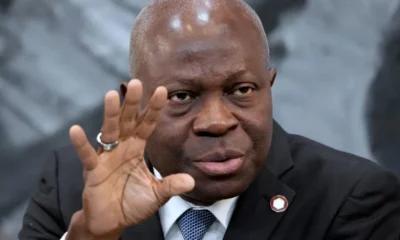

Sex trade dominates as UN warns criminals making billions from forced labour
-
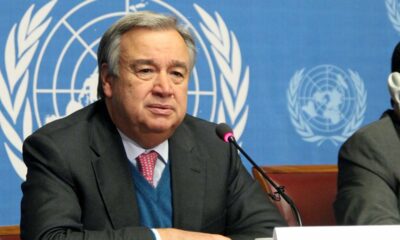

UN chief Guterres calls for Ramadan truce in Sudan
-


Italy seizes German ship involved in sea dispute with Libya
-
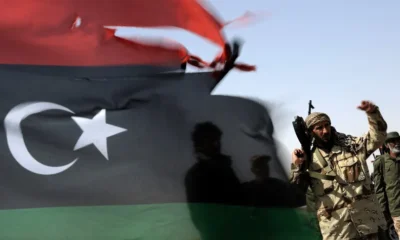

UN calls for probe into Tripoli shooting deaths
-
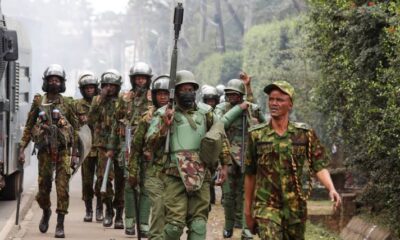

Kenya-led multinational force to Haiti will face difficulties— Report
Strictly Personal
Air Peace, capitalism and national interest, By Dakuku Peterside
Published
2 weeks agoon
April 16, 2024
Nigerian corporate influence and that of the West continue to collide. The rationale is straightforward: whereas corporate activity in Europe and America is part of their larger local and foreign policy engagement, privately owned enterprises in Nigeria or commercial interests are not part of Nigeria’s foreign policy ecosystem, neither is there a strong culture of government support for privately owned enterprises’ expansion locally and internationally.
The relationship between Nigerian businesses and foreign policy is important to the national interest. When backing domestic Nigerian companies to compete on a worldwide scale, the government should see it as a lever to drive foreign policy, and national strategic interest, promote trade, enhance national security considerations, and minimize distortion in the domestic market as the foreign airlines were doing, boost GDP, create employment opportunities, and optimize corporate returns for the firms.
Admitted nations do not always interfere directly in their companies’ business and commercial dealings, and there are always exceptions. I can cite two areas of exception: military sales by companies because of their strategic implications and are, therefore, part of foreign and diplomatic policy and processes. The second is where the products or routes of a company have implications for foreign policy. Air Peace falls into the second category in the Lagos – London route.
Two events demonstrate an emerging trend that, if not checked, will disincentivize Nigerian firms from competing in the global marketplace. There are other notable examples, but I am using these two examples because they are very recent and ongoing, and they are typological representations of the need for Nigerian government backing and support for local companies that are playing in a very competitive international market dominated by big foreign companies whose governments are using all forms of foreign policies and diplomacy to support and sustain.
The first is Air Peace. It is the only Nigerian-owned aviation company playing globally and checkmating the dominance of foreign airlines. The most recent advance is the commencement of flights on the Lagos – London route. In Nigeria, foreign airlines are well-established and accustomed to a lack of rivalry, yet a free-market economy depends on the existence of competition. Nigeria has significantly larger airline profits per passenger than other comparable African nations. Insufficient competition has resulted in high ticket costs and poor service quality. It is precisely this jinx that Air Peace is attempting to break.
On March 30, 2024, Air Peace reciprocated the lopsided Bilateral Air Service Agreement, BASA, between Nigeria and the United Kingdom when the local airline began direct flight operations from Lagos to Gatwick Airport in London. This elicited several reactions from foreign airlines backed by their various sovereigns because of their strategic interest. A critical response is the commencement of a price war. Before the Air Peace entry, the price of international flight tickets on the Lagos-London route had soared to as much as N3.5 million for the economy ticket. However, after Air Peace introduced a return economy class ticket priced at N1.2 million, foreign carriers like British Airways, Virgin Atlantic, and Qatar Airways reduced their fares significantly to remain competitive.
In a price war, there is little the government can do. In an open-market competitive situation such as this, our government must not act in a manner that suggests it is antagonistic to foreign players and competitors. There must be an appearance of a level playing field. However, government owes Air Peace protection against foreign competitors backed by their home governments. This is in the overall interest of the Nigerian consumer of goods and services. Competition history in the airspace works where the Consumer Protection Authority in the host country is active. This is almost absent in Nigeria and it is a reason why foreign airlines have been arbitrary in pricing their tickets. Nigerian consumers are often at the mercy of these foreign firms who lack any vista of patriotism and are more inclined to protect the national interest of their governments and countries.
It would not be too much to expect Nigerian companies playing globally to benefit from the protection of the Nigerian government to limit influence peddling by foreign-owned companies. The success of Air Peace should enable a more competitive and sustainable market, allowing domestic players to grow their network and propel Nigeria to the forefront of international aviation.
The second is Proforce, a Nigerian-owned military hardware manufacturing firm active in Rwanda, Chad, Mali, Ghana, Niger, Burkina Faso, and South Sudan. Despite the growing capacity of Proforce in military hardware manufacturing, Nigeria entered two lopsided arrangements with two UAE firms to supply military equipment worth billions of dollars , respectively. Both deals are backed by the UAE government but executed by UAE firms.
These deals on a more extensive web are not unconnected with UAE’s national strategic interest. In pursuit of its strategic national interest, India is pushing Indian firms to supply military equipment to Nigeria. The Nigerian defence equipment market has seen weaker indigenous competitors driven out due to the combination of local manufacturers’ lack of competitive capacity and government patronage of Asian, European, and US firms in the defence equipment manufacturing sector. This is a misnomer and needs to be corrected.
Not only should our government be the primary customer of this firm if its products meet international standards, but it should also support and protect it from the harsh competitive realities of a challenging but strategic market directly linked to our national military procurement ecosystem. The ability to produce military hardware locally is significant to our defence strategy.
This firm and similar companies playing in this strategic defence area must be considered strategic and have a considerable place in Nigeria’s foreign policy calculations. Protecting Nigeria’s interests is the primary reason for our engagement in global diplomacy. The government must deliberately balance national interest with capacity and competence in military hardware purchases. It will not be too much to ask these foreign firms to partner with local companies so we can embed the technology transfer advantages.
Our government must create an environment that enables our local companies to compete globally and ply their trades in various countries. It should be part of the government’s overall economic, strategic growth agenda to identify areas or sectors in which Nigerian companies have a competitive advantage, especially in the sub-region and across Africa and support the companies in these sectors to advance and grow to dominate in the African region with a view to competing globally. Government support in the form of incentives such as competitive grants ,tax credit for consumers ,low-interest capital, patronage, G2G business, operational support, and diplomatic lobbying, amongst others, will alter the competitive landscape. Governments and key government agencies in the west retain the services of lobbying firms in pursuit of its strategic interest.
Nigerian firms’ competitiveness on a global scale can only be enhanced by the support of the Nigerian government. Foreign policy interests should be a key driver of Nigerian trade agreements. How does the Nigerian government support private companies to grow and compete globally? Is it intentionally mapping out growth areas and creating opportunities for Nigerian firms to maximize their potential? Is the government at the domestic level removing bottlenecks and impediments to private company growth, allowing a level playing field for these companies to compete with international companies?
Why is the government patronising foreign firms against local firms if their products are of similar value? Why are Nigerian consumers left to the hands of international companies in some sectors without the government actively supporting the growth of local firms to compete in those sectors? These questions merit honest answers. Nigerian national interest must be the driving factor for our foreign policies, which must cover the private sector, just as is the case with most developed countries. The new global capitalism is not a product of accident or chance; the government has choreographed and shaped it by using foreign policies to support and protect local firms competing globally. Nigeria must learn to do the same to build a strong economy with more jobs.
Strictly Personal
This is chaos, not governance, and we must stop it, By Tee Ngugi
Published
2 weeks agoon
April 10, 2024
The following are stories that have dominated mainstream media in recent times. Fake fertiliser and attempts by powerful politicians to kill the story. A nation of bribes, government ministries and corporations where the vice is so routine that it has the semblance of policy. Irregular spending of billions in Nairobi County.
Billions are spent in all countries on domestic and foreign travel. Grabbing of land belonging to state corporations, was a scam reminiscent of the Kanu era when even public toilets would be grabbed. Crisis in the health and education sectors.
Tribalism in hiring for state jobs. Return of construction in riparian lands and natural waterways. Relocation of major businesses because of high cost of power and heavy taxation. A tax regime that is so punitive, it squeezes life out of small businesses. Etc, ad nauseam.
To be fair, these stories of thievery, mismanagement, negligence, incompetence and greed have been present in all administrations since independence.
However, instead of the cynically-named “mama mboga” government reversing this gradual slide towards state failure, it is fuelling it.
Alternately, it’s campaigning for 2027 or gallivanting all over the world, evoking the legend of Emperor Nero playing the violin as Rome burned.
A government is run based on strict adherence to policies and laws. It appoints the most competent personnel, irrespective of tribe, to run efficient departments which have clear-cut goals.
It aligns education to its national vision. Its strategies to achieve food security should be driven by the best brains and guided by innovative policies. It enacts policies that attract investment and incentivize building of businesses. It treats any kind of thievery or negligence as sabotage.
Government is not a political party. Government officials should have nothing to do with political party matters. They should be so engaged in their government duties that they literally would not have time for party issues. Government jobs should not be used to reward girlfriends and cronies.
Government is exhausting work undertaken because of a passion to transform lives, not for the trappings of power. Government is not endless campaigning to win the next election. To his credit, Mwai Kibaki left party matters alone until he had to run for re-election.
We have corrupted the meaning of government. We have parliamentarians beholden to their tribes, not to ideas.
We have incompetent and corrupt judges. We have a civil service where you bribe to be served. Police take bribes to allow death traps on our roads. We have urban planners who plan nothing except how to line their pockets. We have regulatory agencies that regulate nothing, including the intake of their fat stomachs.
We have advisers who advise on which tenders should go to whom. There is no central organising ethos at the heart of government. There is no sense of national purpose. We have flurries of national activities, policies, legislation, appointments which don’t lead to meaningful growth. We just run on the same spot.
Tee Ngugi is a Nairobi-based political commentator
EDITOR’S PICK


Nigeria loses N1.29trn annually to crude oil theft, vandalism— Reps Speaker
Speaker of Nigeria’s House of Representatives, Hon. Abbas Tajudeen, has revealed that the country loses a whopping sum of N1.29...


Intel Liftoff Hackathon 2024 calls for applications from African AI startups
Applications for the 2024 cohort of Intel Liftoff Hackathon has opened for African AI startups designed to bring together aspiring...


African men run away from single mothers— Joselyn Dumas
Veteran Ghanaian actress and media personality, Joselyn Dumas, has lamented the fact that most African men shy away from getting...


Former Zambian captain Rainford Kalaba discharged from hospital after near-fatal accident
Former Zambian national team captain, Rainford Kalaba, has been discharged from hospital weeks after he was involved in a near-fatal...


‘Cyber Act fails to protect the vulnerable,’ Student demands media inclusivity for persons with disabilities
Peter Libila, a student at Icof University’s Chipata campus, highlights the lack of awareness among individuals with disabilities and those...


All my tough policy decisions are in Nigerians’ interest— Tinubu
President Bola Tinubu of Nigeria has insisted that all his tough policy decisions and reforms have been taken with the...
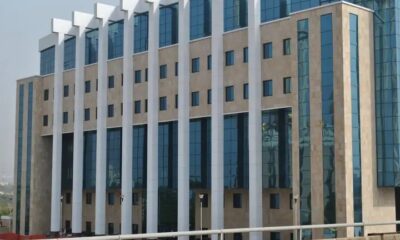

Nigerian oil regulator implements regional fuel standards
Nigeria’s oil authority has clarified that the recent changes to diesel fuel sulphur content standards are part of a regional...


IMF predicts Kenya’s economy to overtake Angola
The International Monetary Fund (IMF) says that this year, Kenya will pass Angola to become the fourth biggest economy in...


S’Africa lengthens troop deployment in Mozambique, Congo DR
President Cyril Ramaphosa said in a speech that South Africa’s military would keep sending troops to Mozambique and the Democratic...


Nigeria govt cancels 924 dormant mining licences
Nigeria’s minister of mines said on Wednesday that 924 expired mining licences had been cancelled immediately. The country now wants...
Trending
-

 Culture2 days ago
Culture2 days agoNamibia govt condemns tourists posing naked on Big Daddy Dune
-

 Tech2 days ago
Tech2 days agoNigeria’s NGX Group enters into strategic investment partnership with Ethiopian Securities Exchange
-

 Metro23 hours ago
Metro23 hours ago‘Cyber Act fails to protect the vulnerable,’ Student demands media inclusivity for persons with disabilities
-

 Sports22 hours ago
Sports22 hours agoFormer Zambian captain Rainford Kalaba discharged from hospital after near-fatal accident


